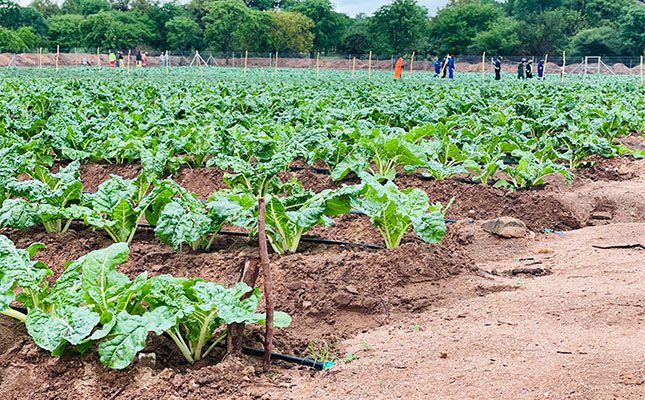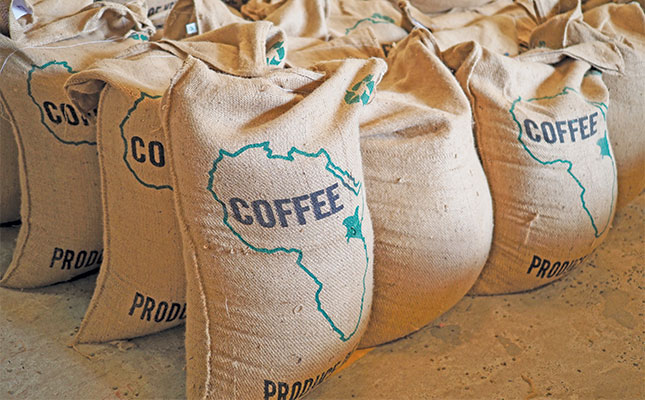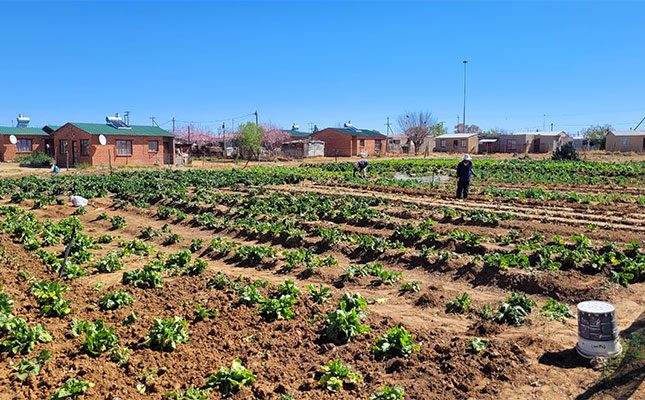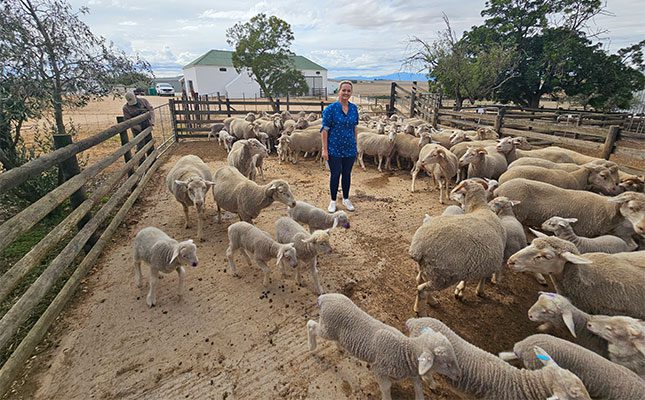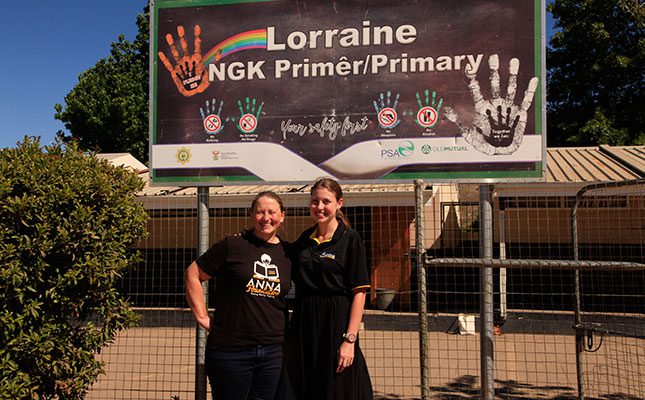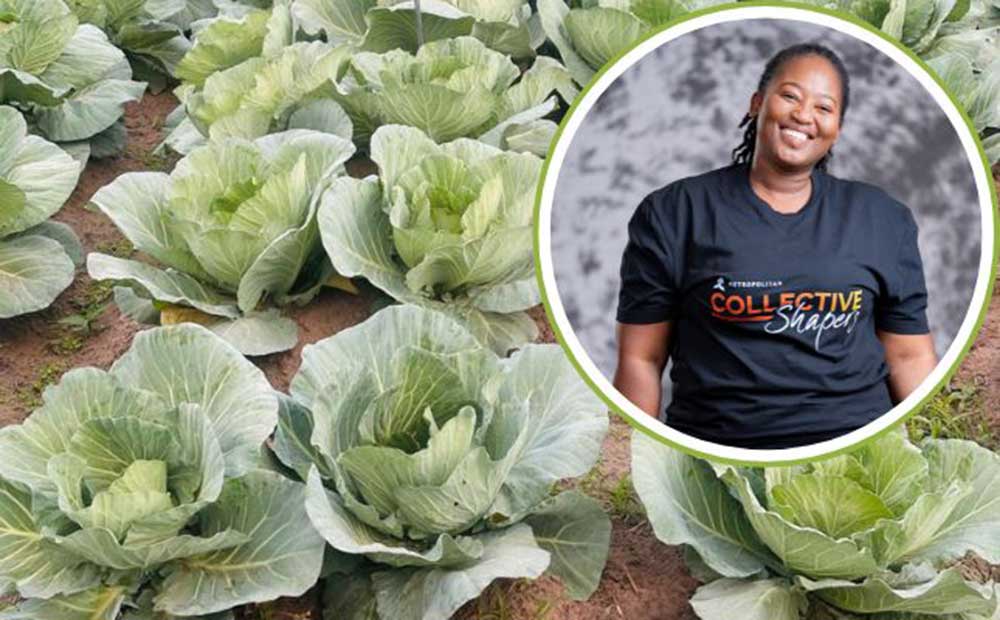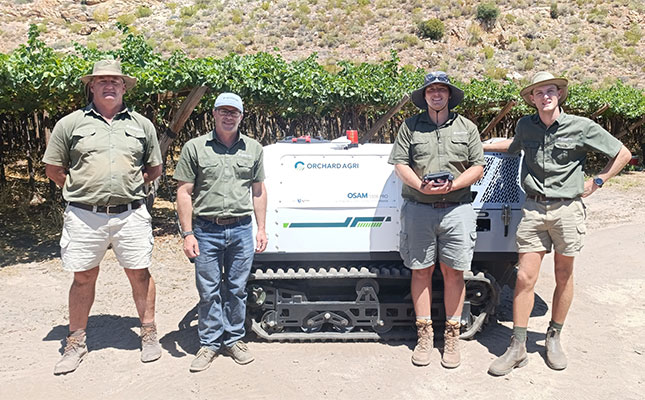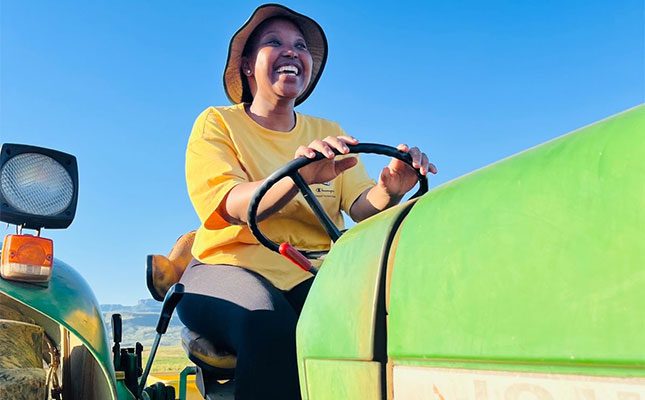
“I saw both the beauty and the struggle of farming and wanted to be part of a new generation that modernises agriculture, making it profitable, sustainable, and regenerative, while also uplifting rural communities,” says Maphalala.
According to Maphalala, she came across the Metropolitan Collective Shapers programme through online platforms and social media.
“What drew me in was the focus on entrepreneurship and community transformation.”
She decided to take part in the programme because she wanted to strengthen her leadership skills by learning from experienced facilitators, but also wished to connect with like-minded changemakers.
“I believed it would be a catalyst for both personal and business growth.”
Complimenting her love for agriculture and the land, she pursued a formal agricultural education at the University of the Free State, where she obtained a bachelor’s degree in Agricultural Economics, followed by an honours degree in the same field.
“While I did not attend an agricultural high school, my tertiary education grounded me in both the theory and economics of sustainable farming.”
Maphalala officially started farming three years ago in 2022 and named her business Isithelo Esihle Ecological Farm. The farm is based in Zwelisha, Bergville, KwaZulu-Natal.
“Entering agriculture was a culmination of passion, academic insight, and a strong desire to create a lasting impact in my community.”
She mainly farms soya bean, but is currently looking to expand to various vegetable crops.
“I plan to integrate agro-processing and organic fertiliser production so that I can close the value chain loop and enhance sustainability. I want to build a business that merges profitability with purpose.”
Access to markets is always one of the stumbling blocks when it comes to farmers who enter the sector, but Maphalala has this covered.
“In our marketing strategy, we are including local consumers, community members, and small retailers. We are also exploring partnerships with regional suppliers and agro-processors. Currently, we sell our produce through local markets, word-of-mouth referrals, and community-based networks. As we grow, we plan to tap into larger distribution channels and retail outlets.”
She adds that they are relying on storytelling to sell their products. “We want people to know about our journey and to resonate with the values behind our produce.”
What she likes most about farming is the opportunity to create something meaningful from the soil.
“It feels good to be involved with something that feeds people, inspires the youth, and brings pride to my community. I love the freedom to innovate and the resilience that farming teaches you.”
As with any other business, one has to keep your eye on challenges. According to Maphalala, the main challenges that they have to navigate include unpredictable weather patterns and costs.
“I experienced hail damage in my first season, and in my second season I experience drought. Then in the following season we had excessive rainfall, which had a huge impact on my harvest.”
She adds that the rising cost of inputs presents significant challenges.
Like many emerging farmers, access to finance is a considerable and consistent challenge. She says that she has been very fortunate to be a part of the Metropolitan Collective Shapers as some of her financial stress has been eased.
“I am focusing on improving my marketing and technical skills to support the expansion of the farming operations. Scale makes a difference in remaining sustainable,” she says.
The future for Maphalala is based on big dreams. “My goal is to establish a local agro-processing hub and eventually launch an agricultural bank that supports underserved farmers with tailored financial services and support.”
She hopes to adopt more precision agriculture technologies and practices, such as using drones and sensors to increase efficiency.
She confidently states that taking part in the programme benefitted her business and her own personal growth.
The Metropolitan Collective Shapers
“Taking part in the Metropolitan Collective Shapers not only opened doors to new opportunities, but also gave me clarity, structure, and renewed confidence in my vision. It also expanded my professional network and gave my business national visibility, which has been instrumental in my growth journey.”
She adds that she is walking away with actionable skills, enhanced self-awareness, and a deeper sense of belonging within a network of high-impact individuals. “The programme empowered me to dream bigger and act bolder.”
The module on brand-building, leadership and storytelling resonated the most with her.
“It allowed me to align my business goals with my personal purpose and taught me how to communicate those goals powerfully. Together with the financial literacy, the entire programme really transformed my business and financial standing.”
She recounts that it was not all about personal gain.
“The skills and insights I gained are already being applied in how I engage with local farmers and the youth. I now share knowledge more intentionally and bring more structure to the partnerships and initiatives I lead.”
She is confident that she will be able to apply and build on the skills she acquired and states that the programme instilled in her lifelong tools for leadership, systems thinking, and collaboration that she can continue to build on for the rest of her farming career.
“The Metropolitan Collective Shapers programme reaffirmed my belief that young African leaders hold the key to transformative change. I am grateful for the platform and remain committed to using the experience to uplift others, build inclusive economies, and reshape agriculture in South Africa.”
Get trusted farming news from Farmers Weekly in Google Top Stories.
➕ Add Farmers Weekly to Google ✔ Takes 10 seconds · ✔ Remove anytime
